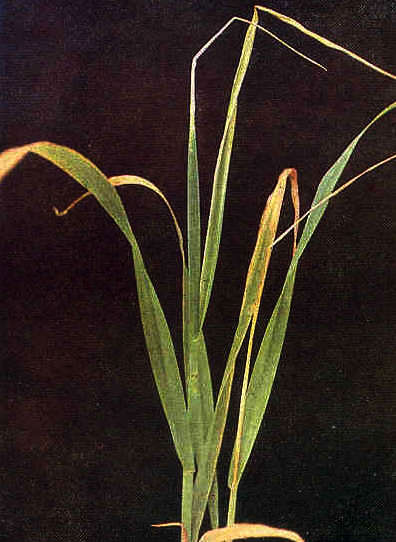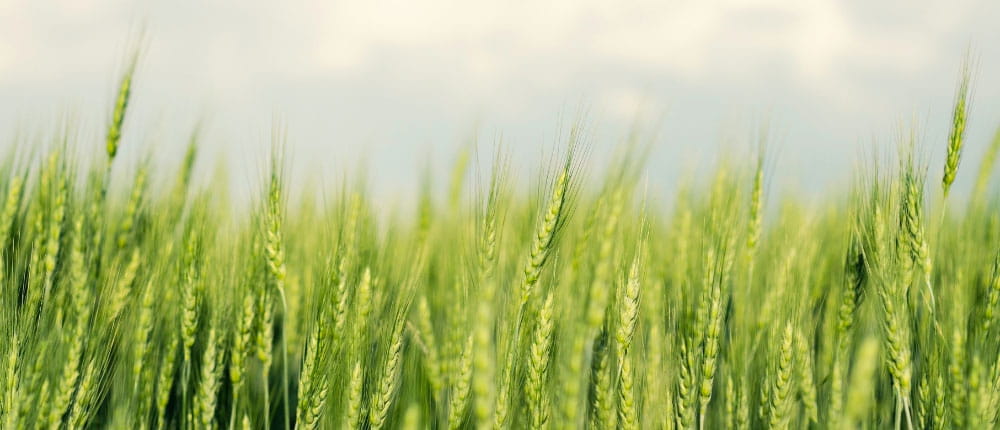Copper (Cu) contributes to healthy crop growth, especially in wheat and small grains, which are highly reactive to copper.
An essential micronutrient in a grower’s lineup, copper activates enzymes and catalyzes reactions, including photosynthetic electron transport, cell wall metabolization and protein synthesis. Most importantly, the presence of copper is necessary for chlorophyll formation in plants.
Copper deficiency can easily develop in environments with sandy-textured or peaty soils, as well as a pH over 7.5, as these soils already have a low copper concentration. In addition, copper is the most immobile of the essential micronutrients, meaning it doesn’t move to areas of active growth, or new leaves, on its own.
Strategic copper application is important to correct copper deficiency. However, it's important that growers pay close attention to copper levels during their fertilizer application. There is a fine line between too little and too much copper, but copper deficiency can have a severe impact on a plant’s ability to reproduce.
Copper deficiency symptoms
If wheat doesn’t have enough copper, crops can develop deficiency symptoms which affect young leaves and plant reproduction.
It’s important to keep an eye out for symptoms of deficiency in wheat, such as:
- Leaf limpness or wilting
- New leaves yellow, curled under at the tip
- Pig or whip tailing of flag leaves
- Stunted growth
- Increased disease susceptibility, including take-all root rot, stem or head melanosis, or ergot

Photo from Teagasc
Because there’s a delicate balance between too much and too little copper, it's important to monitor fields that routinely receive copper fertilizers and manure, as toxicity can develop. Copper toxicity can persist for an extended period of time and is difficult to correct because of copper’s low solubility in water.
Moxon Cu is “just right”
Foliar nutrition should be an important part of your overall crop fertilization strategy to maximize crop yields. Always think about ways to be proactive with foliar nutrition rather than just using it to fix a problem.
Applying foliar nutrients, like Moxon Cu, gives you the ability to apply nutrients the wheat needs as it is developing. Plants have increased demands for certain nutrients during growth stages. If the nutrients are applied at the ideal time and in the appropriate form, this can result in improved plant health and development to increase overall crop yields.
Give your crops the perfect amount of copper with Moxon Cu. The product can be applied as a foliar spray on a wide array of agricultural crops including alfalfa, canola and corn, in addition to wheat and small grains, to correct nitrogen and copper deficiencies and improve growth.
Moxon Cu is a foliar applied, ortho-ortho EDDHA chelated source of nitrogen and copper.
- Equipped with the patented Levesol® chelate to increase availability of copper and translocation into the plant.
- Low salt, highly efficient source of nitrogen.
- Rapid nitrogen absorption to improve yield.
For more information on copper and crop nutrient needs, contact your CHS agronomy representative.




